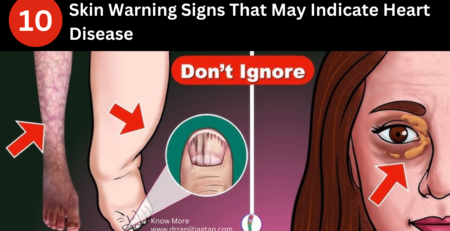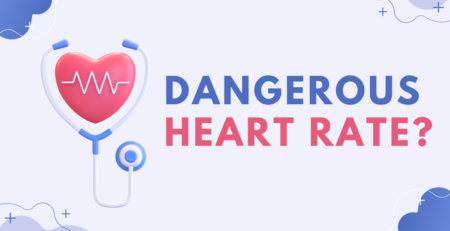Importance of Regular Cardiac Checkups
Are you worried about your heart health? You’re not alone. Many people wonder if they’re doing enough to protect their most vital organs. This is why regular cardiac checkups are so important. They can help catch potential issues early and give you peace of mind. In this article, we’ll explore why you should make cardiac checkups a priority in your health routine.
Why Should You Care About Regular Cardiac Checkups?
Your heart works tirelessly, beating about 100,000 times a day. However, heart disease remains a leading cause of death worldwide. Regular cardiac checkups can help detect problems before they become serious. They may even save your life. These checkups are your first line of defense against heart disease.
What Happens During A Cardiac Checkup?
A cardiac checkup isn’t as daunting as you might think. Your doctor will usually start with a physical exam and ask about your medical history. They may also perform tests like blood pressure measurements and electrocardiograms (ECGs). These tests help paint a picture of your heart health.
How Often Should You Get A Cardiac Checkup?
The frequency of your check ups depends on several factors. These include your age, overall health, and risk factors for heart disease. Generally, adults should have a cardiac evaluation at least once every two years. However, your doctor may recommend more frequent checkups if you have specific risk factors.
Who Needs Regular Cardiac Checkups The Most?
While everyone can benefit from regular cardiac checkups, some people need them more than others. This includes individuals with a family history of heart disease, smokers, and those with high blood pressure or cholesterol. People with diabetes or obesity may also need more frequent checkups.
What Are The Benefits Of Regular Cardiac Checkups?
Regular cardiac checkups offer numerous benefits. They can help detect heart problems early when they’re easier to treat. These checkups may also motivate you to make healthier lifestyle choices. By monitoring your heart health over time, you and your doctor can work together to prevent serious issues.
How Can You Prepare For A Cardiac Checkup?
Preparing for your cardiac checkup is simple. Make a list of any symptoms you’ve been experiencing, even if they seem unrelated to your heart. Bring a list of your current medications and be ready to discuss your family medical history. It’s also helpful to write down any questions you have for your doctor.
Why Is It Important to Get a Regular Heart Check-Up?
Regular heart check-ups are crucial for maintaining good cardiovascular health. These check-ups can help detect early signs of heart disease, monitor existing conditions, identify risk factors, and ultimately prevent heart attacks and strokes. Many heart conditions, such as high blood pressure or high cholesterol, often show no symptoms in their early stages. Regular check-ups can identify these conditions before they lead to more serious complications.
Additionally, if you have a pre-existing heart condition, regular check-ups can ensure that your treatment is effective and that your condition is not worsening. Furthermore, these check-ups can help identify potential risk factors for heart disease, such as smoking, obesity, and family history, so that you can take steps to manage them. By addressing heart problems early, you can significantly reduce your risk of experiencing a heart attack or stroke.
What Are the Benefits of Cardiac Testing?
Cardiac testing can provide valuable information about the health of your heart and blood vessels. Some of the benefits include diagnosing heart conditions, assessing heart function, evaluating treatment effectiveness, and identifying risk factors. Tests like electrocardiograms (EKGs), echocardiograms, and stress tests can help diagnose various heart conditions, such as heart attacks, arrhythmias, and heart failure.
Additionally, cardiac tests can evaluate how well your heart is pumping blood and whether there are any abnormalities in its structure or function. If you are undergoing treatment for a heart condition, cardiac testing can help determine if the treatment is working as intended. Furthermore, some cardiac tests, such as stress tests, can help identify risk factors for heart disease, such as coronary artery disease.
What Is the Most Important Heart Test?
There is no single “most important” heart test. The appropriate test will depend on your individual medical history, symptoms, and risk factors. However, some common cardiac tests that are often used include electrocardiograms (EKGs), echocardiograms, stress tests, and coronary angiograms. An EKG records the electrical activity of your heart, while an echocardiogram uses sound waves to create images of your heart.
A stress test evaluates how your heart responds to physical stress, and a coronary angiogram uses X-rays to visualize the arteries that supply blood to your heart. It’s important to discuss with your doctor which tests are most appropriate for you based on your specific needs.
Conclusion
Regular cardiac checkups are a crucial part of maintaining your overall health. They can help detect potential problems early, guide you towards a healthier lifestyle, and give you peace of mind. Don’t wait for symptoms to appear before you start caring for your heart. Make regular cardiac checkups a priority in your health routine. Your heart will thank you for it.
Frequently Asked Questions
What Is The Cost Of A Regular Cardiac Checkup?
The cost can vary depending on your location and insurance coverage. Many preventive services, including cardiac checkups, may be covered by your insurance plan.
Can Regular Cardiac Checkups Prevent Heart Attacks?
While they can’t guarantee prevention, regular checkups can help identify risk factors and early signs of heart disease, potentially reducing your risk of a heart attack.
Are There Any Risks Associated With Cardiac Checkups?
Most cardiac checkup procedures are non-invasive and carry minimal risks. However, if more advanced tests are needed, your doctor will discuss any potential risks with you.
What Should I Do If My Cardiac Checkup Reveals A Problem?
Your doctor will guide you through the next steps, which may include additional tests, lifestyle changes, or treatment options.
Can Young Adults Benefit From Regular Cardiac Checkups?
Yes, cardiac checkups can be beneficial for adults of all ages. They can help establish a baseline for your heart health and detect any early signs of heart issues.





